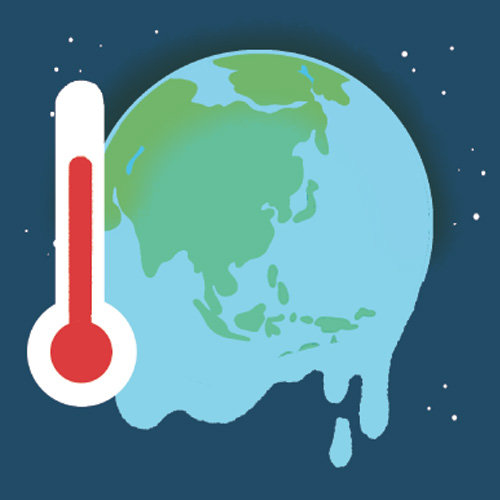The answer to global warming lies in the ocean
The answer to global warming lies in the ocean
Posted May. 16, 2020 07:48,
Updated May. 16, 2020 07:48

A rise of sea temperature is one of the strongest warnings related to global warming since water covers 70% of the Earth’s surface. Warming ocean waters are causing the melting of Arctic and Antarctic sea ice and the sea-level rise. A global rise of sea level means an increase in the size of ocean, and this accelerates global warming since the sea reflects less solar radiation and absorbs less carbon than the Earth’s surface.
If permafrost in the Antarctic whose carbon amounts to 1.8 trillion tons of carbon, twice carbon in the atmosphere, melts due to rising ocean temperatures, it will exacerbate global warming by releasing the enormous amount of carbon dioxide into the atmosphere. This is because carbon dioxide is the major component of greenhouse gases, which is one of the leading causes of global warming.
The ocean’s role in offsetting the effects of global warming is deteriorating as it is losing its natural self-cleaning ability, which is a bigger problem. The ocean curbs global warming by absorbing heat and carbon dioxide. According to the Global Carbon Budget 2014, the ocean absorbed 26% of the carbon dioxide released into the atmosphere in 2013. It is equal to absorbing 10 billion tons of carbon dioxide every year. Much of the carbon dioxide absorbed into the ocean was dissolved by the underwater ecosystem, such as photosynthesis of seaweed. But the level of carbon dioxide absorbed into the ocean exceeded the limit of natural purification capacity and caused a desertification of the ocean, damaging the ocean’s self-cleaning ability.
But as can be seen from the U.S.’ withdrawal from the Paris Climate Agreement, the issue of global warming often takes second place to economic issues or is dismissed as a problem of the future. The one thing we should keep in mind is that global warming can always become a disaster at hand if the ocean stops performing its role. Rising ocean temperatures produce rain and change the way the rain evaporates, making dry regions drier and wet regions more humid. This inevitably produces stronger disasters such as typhoons and wildfires, destroying the land humans live on. Super typhoons, which are causing a great damage to many part of the world, are the result of such climate change.
Saving the ocean requires more attention and efforts since it can have the most direct impact on addressing global warming. Fortunately, the South Korean government designated May 10 as Ocean Arbor Day for the first time in the world in 2012 and has put in efforts to recover the underwater ecosystem, such as planting seaweed. If we find a way to incorporate our efforts to recover the ocean ecosystem into the Korean Wave along with K-pop and K-quarantine, the mankind will be able to take one step forward in tackling global warming.
Eun-Taek Lee nabi@donga.com
Headline News
- N. Korea launches cyberattacks on S. Korea's defense companies
- Major university hospital professors consider a day off each week
- Italy suffers from fiscal deficits from ‘Super Bonus’ scheme
- Inter Milan secures 20th Serie A title, surpassing AC Milan
- Ruling and opposition prioritize spending amid tax revenue shortfalls







